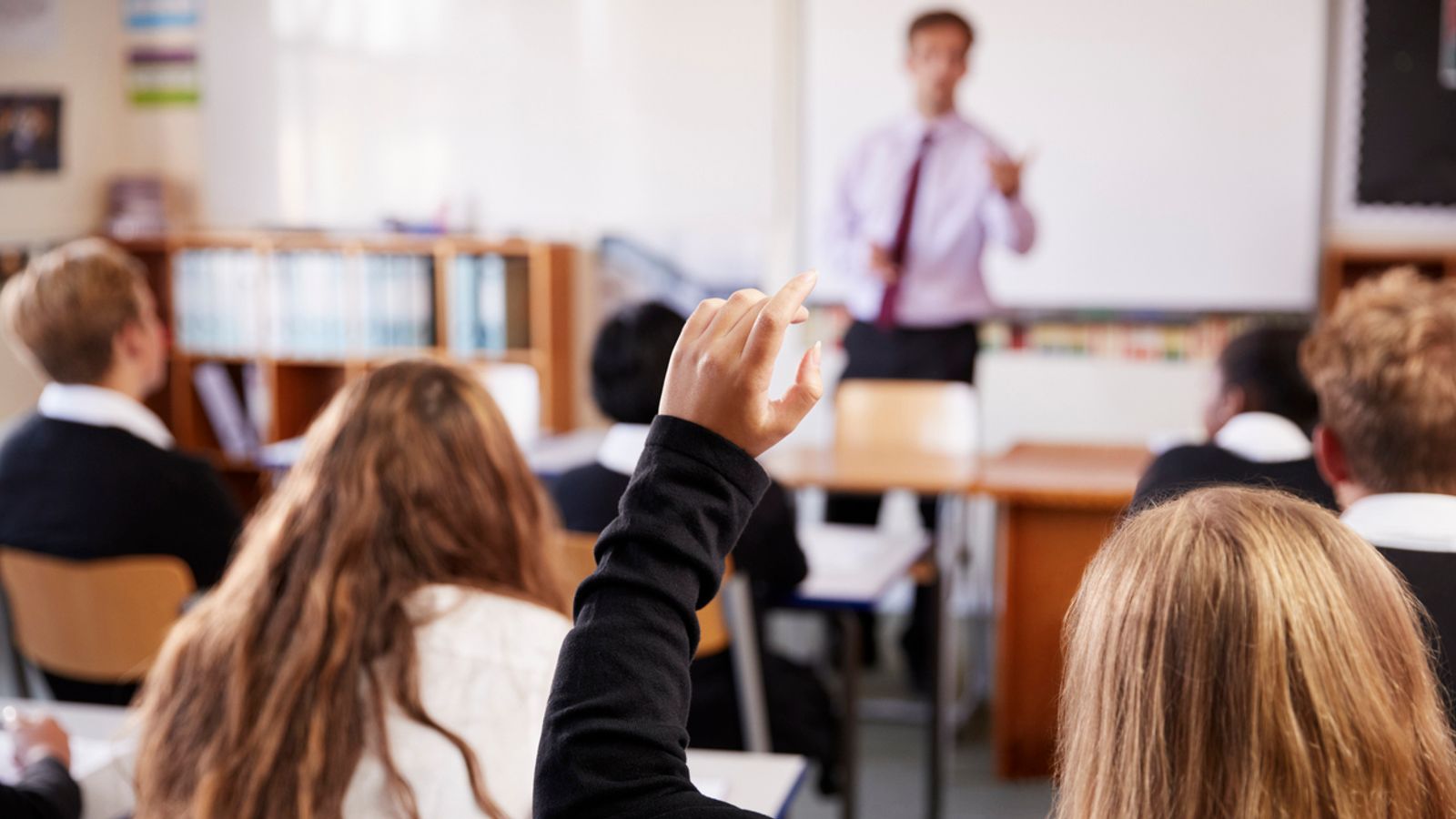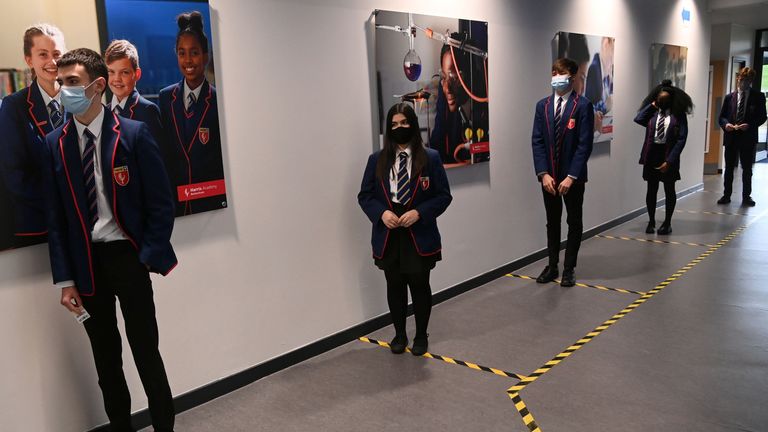Longer school days, shorter summer holidays and five-term years are all options under consideration to help pupils catch up on lost learning, the education secretary has told Sky News.
Speaking to Sophy Ridge on Sunday, Gavin Williamson said the government is looking at a “whole range of different” proposals to help children amid the COVID-19 pandemic.
Live COVID-19 updates from the UK and around the world
“We’re looking at holidays, we’re looking at lengthening the school day, we’re looking at a whole range of measures,” he said.
Mr Williamson said ministers were also considering “enhancing the support we give to teachers, supporting them in their professional development, making sure they can be the very best of themselves”.
He added that Sir Kevan Collins, the government’s education recovery commissioner, has been asked to “leave no stone unturned” in coming up with plans for a catch-up programme.
“We’ve got to look at what is going to have the biggest positive impact on children’s lives,” the education secretary continued.
“That’s the approach that we’re taking and that’s what we’re looking at how we can improve the outcomes for children.”
Mr Williamson was speaking to Sky News ahead of the return of all pupils to school in England on Monday.
Schools have remained open during the third coronavirus lockdown for the vulnerable children and the children of key workers, but the majority of pupils have had to contend with remote learning.
Boris Johnson said the full reopening of schools “marks a truly national effort to beat this virus” and the beginning of lockdown being eased.
The prime minister added: “It is because of the determination of every person in this country that we can start moving closer to a sense of normality – and it is right that getting our young people back into the classroom is the first step.”
Ofsted chief inspector Amanda Spielman said schools had put “extraordinary efforts” into remote learning.
“It’s been a slog, it’s been a real slog. Children on the receiving end are bored, lonely, miserable, anxious and really, really want the normal experience again,” she said.
Ms Spielman said pupils are “adaptable and flexible” around things like wearing face coverings and testing, and “can live with a little bit of inconvenience for a few weeks”.
“I think the overwhelming thing we’re seeing is the vast majority of parents, the vast majority of children and the vast majority of teachers are really happy to be going back to school,” she said.
“I really hope the whole paraphernalia of masks and testing is only necessary for a short time … I love the idea of children being able to come back in summer term able to see everybody fully.”
Ms Spielman added that for the “vast majority of children the restoration of normality” should “lift those symptoms” of mental health issues such as loneliness and anxiety.
But she cautioned: “There is a minority, let’s hope it’s not too large a minority, whose problems have increased. Things like eating disorders, things like self harming … everybody needs to be alert to these.”

